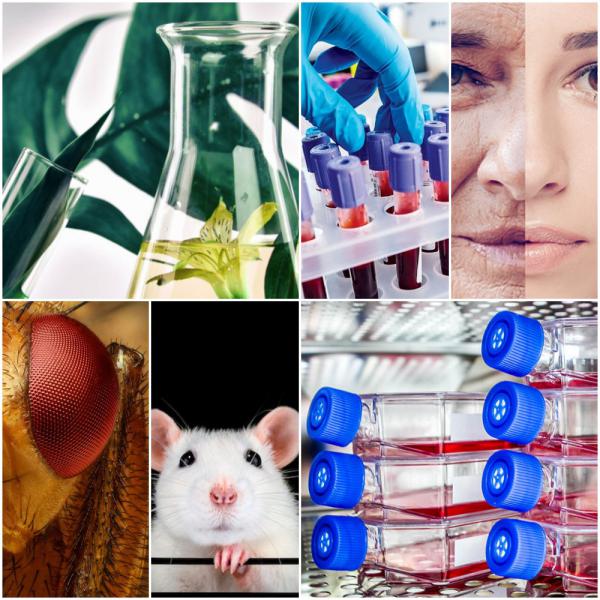
Since the human population around the world is (at least in developed countries) rapidly aging, there is an urgent need for both societies and science to invest more in promoting healthy aging, which enables individuals to live longer and healthier lives. To this end, we employ a systemic approach in order to address fundamental questions concerning the biology of aging and of age-related diseases (e.g., neurodegeneration, cancer, etc.).
We focus on studying the molecular and cellular mechanisms that underly aging and age-related diseases. More specifically, we investigate the role of several components that constitute the proteostasis network (PN) under normal or pathological conditions. By genetically or pharmacologically deregulating PN modules or major PN regulators, we model aging or age-related diseases, aiming to better understand the highly integrated and wide cross-talk of the protein quality control mechanisms and circuits. Since cancer is a major age-related disease, we also employ transgenic models in order to investigate the functional role of tumor suppressors and oncogenes. On a second level, we aim to uncover the interaction, wiring and functional integration of proteostatic modules with mitostasis, metabolic pathways and genomic integrity. Lately and since aging is considered a systemic disease, we use Drosophila as an experimental model to investigate the systemic effects induced at the whole organism level by tissue-specific loss of proteostasis. Besides exploring the biology that controls lifespan, we are in addition involved in the research of natural products and or small molecules with potential therapeutic benefits in extending health-/life-span and in treating age-related human diseases. This strategy includes high throughput cell-free, cell-based, or in vivo assays. Last, in collaboration with several major clinics of our University Medical School we participate in clinical trials.
We focus on studying the molecular and cellular mechanisms that underly aging and age-related diseases. More specifically, we investigate the role of several components that constitute the proteostasis network (PN) under normal or pathological conditions. By genetically or pharmacologically deregulating PN modules or major PN regulators, we model aging or age-related diseases, aiming to better understand the highly integrated and wide cross-talk of the protein quality control mechanisms and circuits. Since cancer is a major age-related disease, we also employ transgenic models in order to investigate the functional role of tumor suppressors and oncogenes. On a second level, we aim to uncover the interaction, wiring and functional integration of proteostatic modules with mitostasis, metabolic pathways and genomic integrity. Lately and since aging is considered a systemic disease, we use Drosophila as an experimental model to investigate the systemic effects induced at the whole organism level by tissue-specific loss of proteostasis. Besides exploring the biology that controls lifespan, we are in addition involved in the research of natural products and or small molecules with potential therapeutic benefits in extending health-/life-span and in treating age-related human diseases. This strategy includes high throughput cell-free, cell-based, or in vivo assays. Last, in collaboration with several major clinics of our University Medical School we participate in clinical trials.
Technologies applied in our lab include a wide range of cellular-molecular biology and analytical biochemistry assays, along with a diverse array of advanced bio-imaging techniques and high throughput transcriptome and proteome analysis assays. Moreover, we utilize various cell-based and in vivo models as we own an extended bio-bank of human/mice normal or cancer cell lines, along with a large collection of transgenic Drosophila lines and also transgenic mice lines developed by us.
